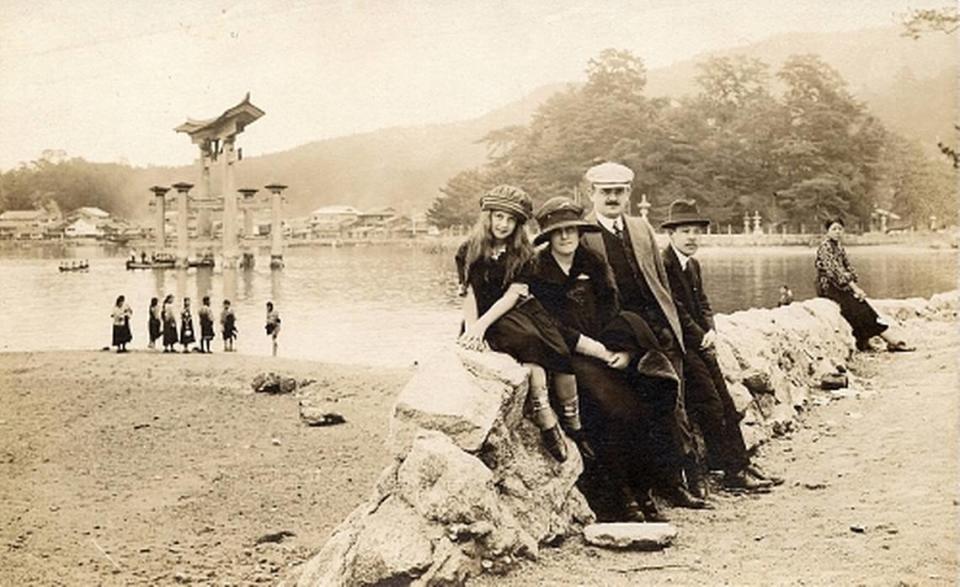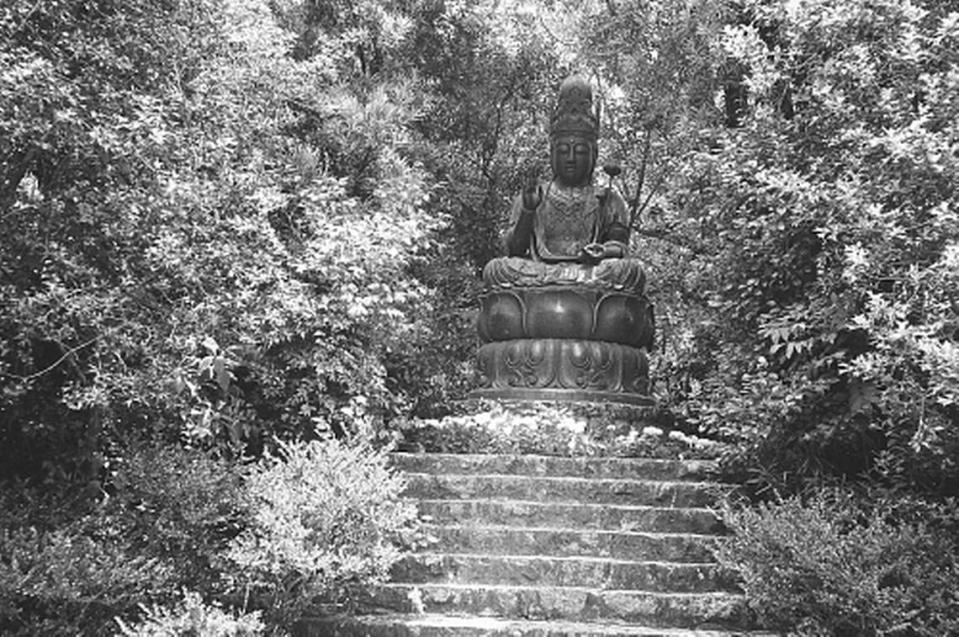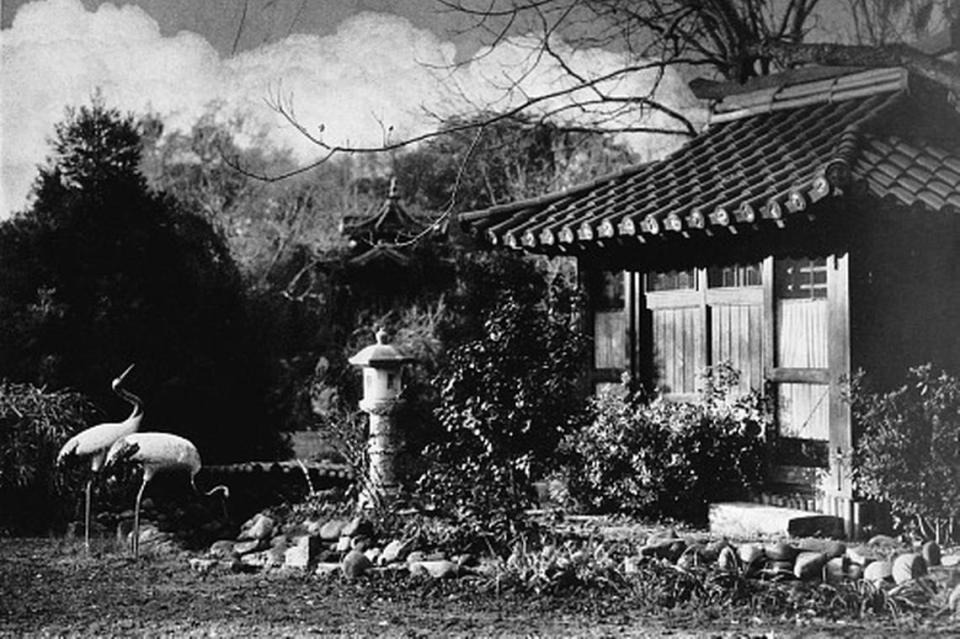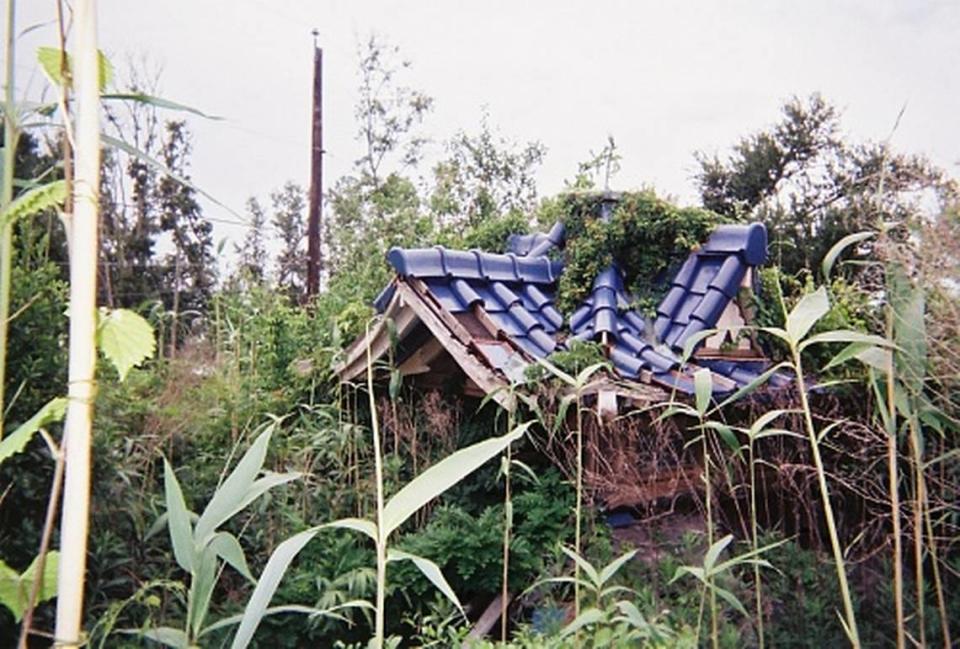A traditional Japanese garden in Mississippi? It was hidden in plain sight for decades.
In the heart of Pass Christian once stood a unique and captivating attraction that brought a touch of Japan to the Mississippi Gulf Coast.
The Hecht family, enchanted by Japanese culture, crafted their very own Japanese garden, complete with bamboo, cherry blossoms and even a majestic Buddha statue.
Rudolph Hecht, originally from Germany, arrived in the United States in 1903. He began his career at Hibernia Bank and Trust in New Orleans and later ascended to the role of president. During his time there, he met Lynne Watkins, daughter of a distinguished Louisiana Supreme Court Justice and Civil War veteran.
Lynne’s family had deep roots in both New Orleans and Pass Christian, where they owned the grand Lynne Castle.
The couple were married on June 3, 1911, at Trinity Episcopal Church in Pass Christian. Their estate in the town consisted of three buildings, known as Westgate, Middlegate and Eastgate.
In 1924, the Hechts embarked on a journey to Japan, where they were captivated by the enchanting sights and rich culture, particularly the art of Japanese gardening. Inspired by their experience, they formulated a plan to bring a piece of Japan back to the United States.

Dr. Ōdate Gyōju, their translator and purchasing agent, assisted in acquiring a variety of Japanese plants and objects.
Rathbone DeBuys, a friend and architect based in New Orleans, collaborated with Mrs. Hecht to refine her vision. Middlegate would be transformed into their personal Japanese garden, a gateway to transport them back to Japan without leaving Pass Christian.
Over the years, the Hechts collected numerous cultural artifacts from Japan, along with several American made recreations. Among them were a magnificent Buddha statue, bronze and stone lanterns, and several granite statues.

A Torii gate stood at the entrance to the property, while a Shinto Shrine and an oriental tea house added to the enchantment. At the heart of the property, a sprawling sunken garden led to a guest house, reached by a grand staircase.
The gardens boasted a rich collection of plants, including azaleas, cherry blossoms, wisteria, camellia japonica and towering bamboo. These botanical treasures, intertwined with local flora like pecan trees, were artfully arranged alongside rocks, mounds, and streams, mimicking a miniature slice of the Japanese countryside.
Such a feature did not stay private for long, as local interest encouraged the Hechts to open the gardens to the public in the 1930s. Not long after, the Middlegate Japanese Gardens became one of the most popular attractions on the Gulf Coast.
School field trips frequented the property, and the local Garden Club hosted their meetings on the grounds. Middlegate became one of the premier destinations for locals, businesses, and tourists from across the state.

Throughout the 40s and 50s, Middlegate Japanese Gardens were frequently listed as one of the finest gardens of its kind in the entire country. This ultimately caught the attention of tourists and travelers from across the nation, and even from around the world.
Following the Hechts passing, the new owners attempted to carry on the legacy of the gardens as a place for the public. Unfortunately, Hurricane Camille destroyed much of the grounds in 1969.
What was left of Middlegate was left in disrepair and neglected throughout the rest of the century. Hurricane Katrina wiped out the few remnants of the grounds in 2005.

All that remains now is the lot that it stood on, a slice of private property at the corner of Pine Ave. and St Louis Street in Pass Christian. While the buildings and organized gardens are long gone, traces of the statues and bamboo can still be seen from the road.

